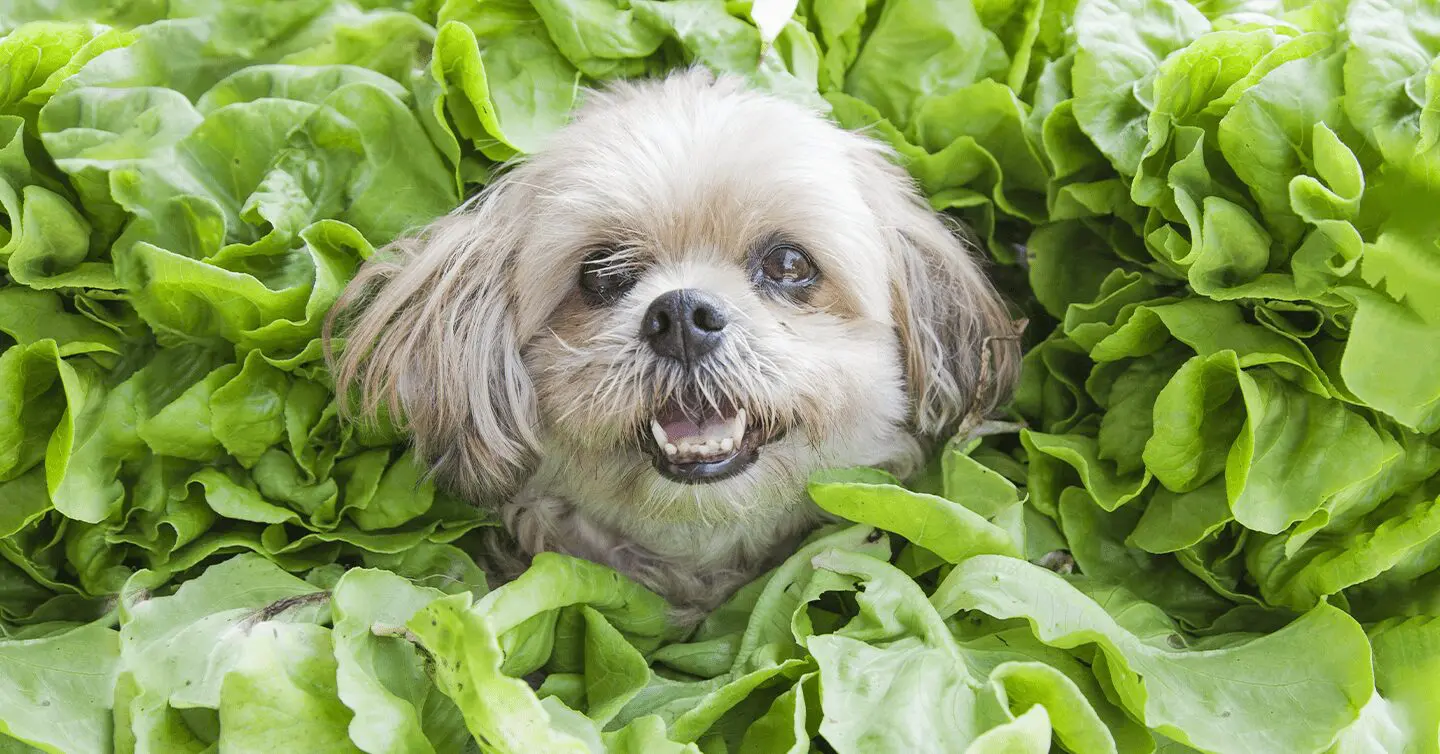You’re making a salad and accidentally drop a spinach leaf. Before you know it, your fur baby has swooped in and gobbled it up. A moment of panic sets in. Can dogs eat spinach? You’ve heard conflicting advice about your four-legged friends and veggies.
So, what’s the truth? Welcome to a comprehensive guide that will dissect this leafy conundrum. We’ll explore scientific facts, consult veterinary experts, and leave you with actionable insights. Whether you’re a new pet parent or a seasoned dog lover, this blog post is a must-read if you want to make informed dietary choices for your canine companion.
What’s in a Spinach Leaf?

In this section, we’re going to get to the nitty-gritty details about what makes spinach a topic of debate in the canine world.
Nutritional Value
Spinach is a superfood that’s packed with nutrients beneficial for humans. But how does it fare when it comes to dogs?
- Vitamins: High in Vitamins A, C, and K.
- Minerals: Rich in iron, calcium, and magnesium.
- Antioxidants: Contains flavonoids and carotenoids.
All these nutrients sound like they could be beneficial for dogs too, right? After all, dogs need vitamins and minerals to maintain overall health. However, it’s not that straightforward, as we will soon discover.
Risks and Concerns
While spinach is nutritious, it also contains elements that could be of concern when it comes to canine consumption.
- Oxalic Acid: This naturally occurring compound can interfere with calcium absorption and could lead to kidney stones in dogs.
- Pesticides: Conventionally grown spinach is often treated with pesticides, which can be harmful if ingested.
It’s this mix of beneficial nutrients and potential risks that make spinach a controversial food item for dogs.
Science Speak: What the Studies Say

Let’s go beyond the hearsay and dig into the scientific data available on the effects of feeding spinach to dogs.
Gastrointestinal Effects
Dogs have a different digestive system compared to humans. High levels of oxalic acid in spinach can cause gastrointestinal issues in dogs, such as diarrhea or even more serious conditions like kidney stones.
While these cases are relatively rare, they are theoretically possible, particularly if spinach is consumed in large quantities. However, cooking spinach can reduce its oxalic acid content. Boiled spinach loses about 30-50% of its oxalic acid, making it a safer option if you’re considering adding a bit of this leafy green to your pet’s meal.
Nutritional Benefits
On the flip side, moderate amounts of spinach can provide nutritional benefits for your four-legged friend. Vitamins like A, C, and K can help improve your dog’s skin, coat, and immune system. The antioxidants present in spinach can also aid in combating age-related diseases.
But remember, the key term here is “moderate amounts.” A small quantity now and then can offer health benefits without posing significant risks.
Real Talk with Vets: Expert Opinions

You’ve heard what science has to say, but what about the people who deal with pet health on a daily basis? Here’s the scoop from veterinarians.
Veterinary Consensus
Most veterinarians agree that spinach can be fed to your four-legged friends but in limited amounts and preferably cooked. Dr. Sarah Whitman, a board-certified veterinary nutritionist, suggests that “like any treat, spinach should make up no more than 10% of your dog’s daily caloric intake.”
However, if your dog has a history of kidney problems or other health concerns, it’s best to consult your vet before adding spinach to its diet.
Varying Perspectives
Not all vets are on the same page, though. Dr. Emily Adams, a holistic veterinarian, believes that leafy greens like spinach can offer a range of benefits, including improved digestion and liver function. She suggests using organic spinach to avoid pesticide risks. But Dr. Mark Johnson, a traditional veterinarian, is more cautious. He emphasizes the risk of oxalic acid and recommends opting for safer veggies like carrots or cucumbers.
To Feed or Not to Feed: Guidelines for Dog Owners
So, should you or should you not feed your dog spinach? Here’s a balanced guide based on our findings.
Feeding Instructions
- Start Small: Introduce a small amount and monitor for any signs of gastrointestinal discomfort.
- Cook It: Boil the spinach to reduce the oxalic acid content.
- Mix with Regular Food: Combine a small amount of spinach with your dog’s regular food.
What to Avoid
- Large Quantities: More is not better. Stick to small portions.
- Raw Spinach: Given the oxalic acid content, it’s best to avoid raw spinach.
- Seasoning: Avoid adding any salt, garlic, or other seasonings that are harmful to dogs.
Additional Considerations: Age, Breed, and Health Conditions

After absorbing all this information, you might still be wondering: Does the age or breed of my dog make a difference? And what if my dog has certain health conditions?
Age Matters
- Puppies: As previously mentioned, it’s best to avoid spinach for puppies. Their digestive systems are still in the developmental phase, and introducing complex foods can be risky.
- Adults: Generally, adult dogs can handle a more varied diet compared to puppies. Small amounts of cooked spinach can be added to their meals, but always start with a little to see how your pet reacts.
- Seniors: Older canines often have sensitive digestive systems and may be on medication for various health issues. If your senior pooch has any health concerns, consult your vet before adding new foods to their diet.
Breed Specifics
Certain breeds may be more sensitive to foods than others. For example, small breeds like Chihuahuas might be more susceptible to the oxalic acid in spinach than larger breeds like Labradors. Always tailor portion sizes to your dog’s breed and weight.
Health Conditions
If your dog has pre-existing health conditions like kidney issues, diabetes, or allergies, it’s best to steer clear of spinach unless you have explicit approval from your vet.
Culinary Delights: Fun Spinach Recipes for Dogs
Let’s say you’ve consulted with your vet and received the green light to include some spinach in your pet’s diet. How can you make it tasty and enjoyable for your furry friend?
Spinach and Chicken Treats
- Ingredients: Boiled chicken, cooked spinach, brown rice
- Instructions: Mix all ingredients and shape them into small balls. Bake at 350°F (175°C) for 15-20 minutes.
These treats are not only nutritious but also a fun way to reward your pet. Just remember, these should be given as treats and not a replacement for meals.
Spinach and Carrot Smoothie
- Ingredients: Fresh carrots, cooked spinach, plain yogurt
- Instructions: Blend all ingredients until smooth. Serve in a dog-friendly dish or use as a topping for their regular meal.
Smoothies are a refreshing and hydrating treat, especially during hot weather. They can also be frozen in ice-cube trays for a cool summer snack.
FAQs
Are there any risks associated with feeding spinach to dogs?
Yes, spinach is high in oxalic acid, which can block the body’s ability to absorb calcium and may lead to kidney damage. Long-term consumption of spinach can cause kidney stress, muscle weakness, abnormal heart rhythms, and even respiratory paralysis.
How much spinach can I safely give to my dog?
It’s best to consult your veterinarian for personalized advice. However, many sources agree that a dog would need to eat very large quantities of spinach to experience negative effects. Small, infrequent servings are generally considered safe.
What is the best way to prepare spinach for dogs?
Steaming is the best way to prepare spinach for dogs. Boiled spinach loses most of its nutrients, and raw spinach is difficult for a dog to digest. Do not add any spices, herbs, salt, oil, onion, or garlic, as these can be toxic to dogs.
Do dogs need vegetables like spinach in their diet?
Dogs do not necessarily need vegetables in their diet. In fact, their diet should consist of 25% or less vegetable matter. Always consult your vet before adding any new food to your dog’s diet.
Can I mix spinach with my dog’s regular food?
Yes, you can mix small amounts of steamed spinach with your dog’s regular food. However, make sure to consult your vet before making any changes to your pet’s diet.
Are there any alternatives to spinach for dogs?
If you’re concerned about the oxalic acid in spinach, you might consider other leafy greens like kale or Swiss chard, which are generally lower in oxalic acid. However, always consult your vet before introducing new foods.
Should I consult a vet before feeding spinach to my dog?
Yes, it’s always a good idea to consult your veterinarian before adding any new food, including spinach, to your pet’s diet. Your vet can provide personalized advice based on your pet’s health condition.
Final Words
So there you have it! While spinach can be fed to dogs in moderate amounts, it comes with both pros and cons. The trick lies in balance and moderation.
You might also want to consider the overall quality and type of food you’re feeding your dog, such as whether or not to feed them kibble. When in doubt, always consult your veterinarian to make the best dietary choice for your furry friend.
